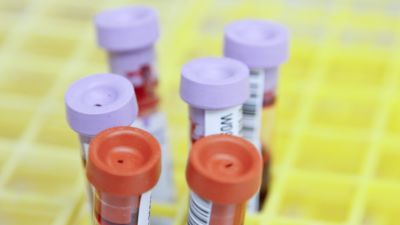London 'on course' to become the world’s first major city to eliminate new HIV infections

London is “on course” to become the world’s first major city to eliminate new HIV infections.
Mayor Sadiq Khan believes the capital is on track to achieve the milestone by its target date of 2030.
The goal was set in January 2018, when Mr Khan signed the city up to the Paris Declaration on Fast-Track Cities Ending the HIV Epidemic – with signatories aiming for zero new cases of HIV, preventable deaths and stigma by 2030.
Asked if the city was on track to meet the target, Mr Khan’s spokesman said: “The Mayor is proud that London is leading the way in tackling HIV and is on course to be the first city to end new infections.
“Sadiq is committed to doing all he can to help end transmission by 2030 and tackle the stigma associated with it.”
The question of whether the goal would be achieved was initially raised in a written question by Emma Best, a Conservative member of the London Assembly.
The Mayor told Ms Best he had been working with a number of health bodies, local authorities and people living with HIV “to support London being on track”, as well as supporting the HIV Commission’s target of achieving an 80 per cent reduction in new HIV transmissions by 2025.
“I’m proud to say that London is leading the way globally, but we know we have more work to do”, said Mr Khan.
He added: “Since introducing opt-out blood borne virus testing in all London emergency departments in April last year, we have detected hundreds of previously undiagnosed cases of HIV, and put people who were unaware they were living with HIV onto lifesaving treatment. This highlights how London’s HIV response can and is going further and faster.”
In 2021, 2,955 people were newly diagnosed with HIV in the UK, 883 of whom were in London.
The figure in London has been gradually dropping over the last decade, with a two thirds (67 per cent) reduction seen since 2012, when 2,656 new cases were diagnosed.
Ms Best also asked Mr Khan how many doses of Pre-exposure prophylaxis (PrEP), a drug used to reduce a person’s chance of getting HIV from sex or needles, have been given out during his time as Mayor.
While specific data on doses wasn’t available, Mr Khan responded by saying that in 2021 some 33,944 people attending sexual health services in London either initiated or continued a course of PrEP – accounting for more than half of the England-wide figure of 61,092.
He added: “As part of my manifesto, I committed to fight for PrEP to continue to be available free on the NHS to everyone who wants it. I am pleased to see that the rollout of routine commissioning of PrEP has been successful across London.”
In answer to a further query from Ms Best, Mr Khan said he had met twice with prominent HIV charity the Terrence Higgins Trust since becoming Mayor, while his officers have separately met with them “several times”.
Want a quick and expert briefing on the biggest news stories? Listen to our latest podcasts to find out What You Need To Know